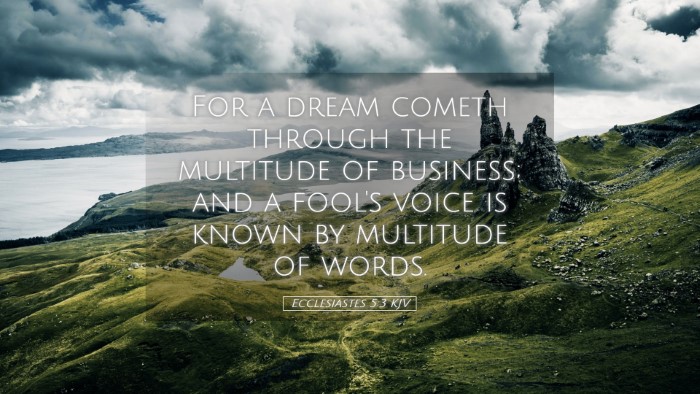Old Testament
Genesis Exodus Leviticus Numbers Deuteronomy Joshua Judges Ruth 1 Samuel 2 Samuel 1 Kings 2 Kings 1 Chronicles 2 Chronicles Ezra Nehemiah Esther Job Psalms Proverbs Ecclesiastes Song of Solomon Isaiah Jeremiah Lamentations Ezekiel Daniel Hosea Joel Amos Obadiah Jonah Micah Nahum Habakkuk Zephaniah Haggai Zechariah MalachiVerse
Ecclesiastes 5:1 Ecclesiastes 5:2 Ecclesiastes 5:3 Ecclesiastes 5:4 Ecclesiastes 5:5 Ecclesiastes 5:6 Ecclesiastes 5:7 Ecclesiastes 5:8 Ecclesiastes 5:9 Ecclesiastes 5:10 Ecclesiastes 5:11 Ecclesiastes 5:12 Ecclesiastes 5:13 Ecclesiastes 5:14 Ecclesiastes 5:15 Ecclesiastes 5:16 Ecclesiastes 5:17 Ecclesiastes 5:18 Ecclesiastes 5:19 Ecclesiastes 5:20

